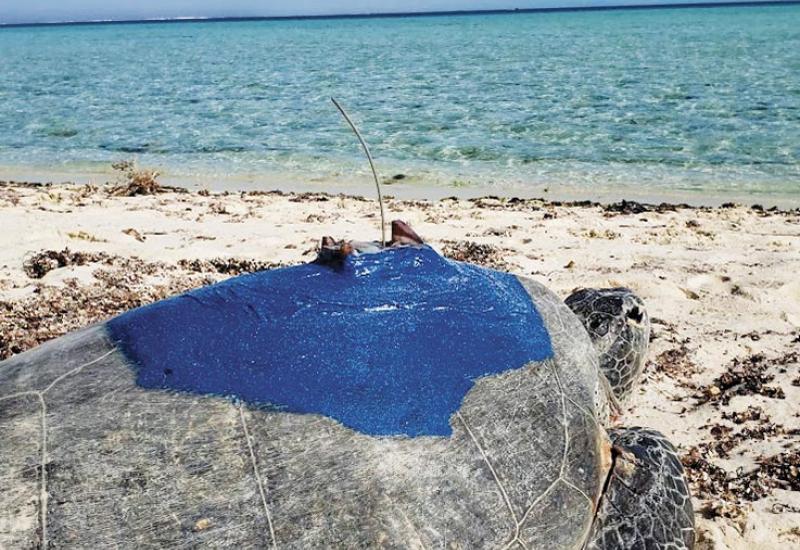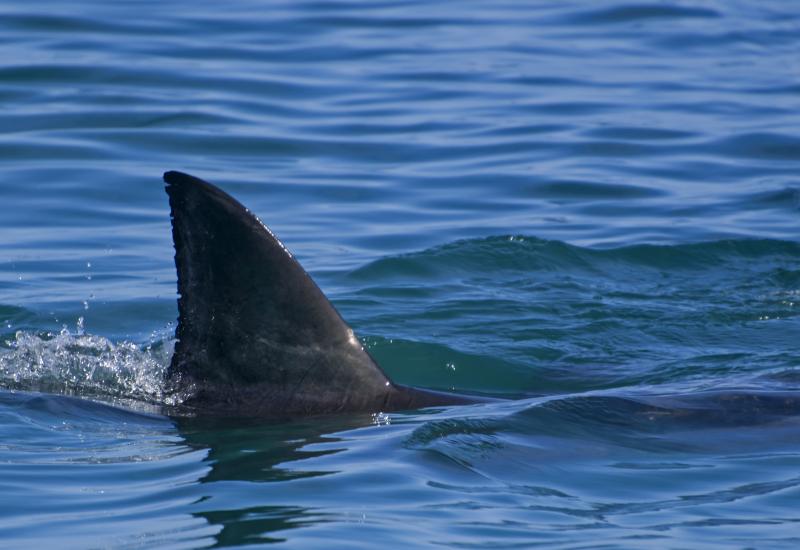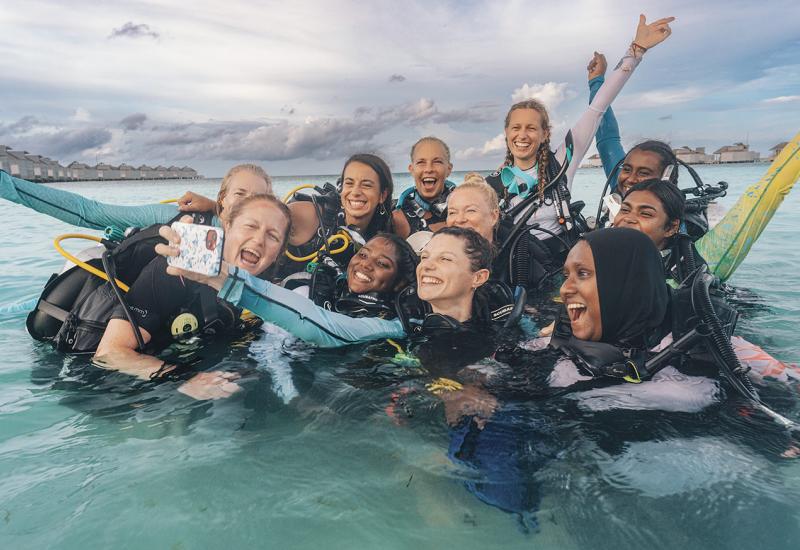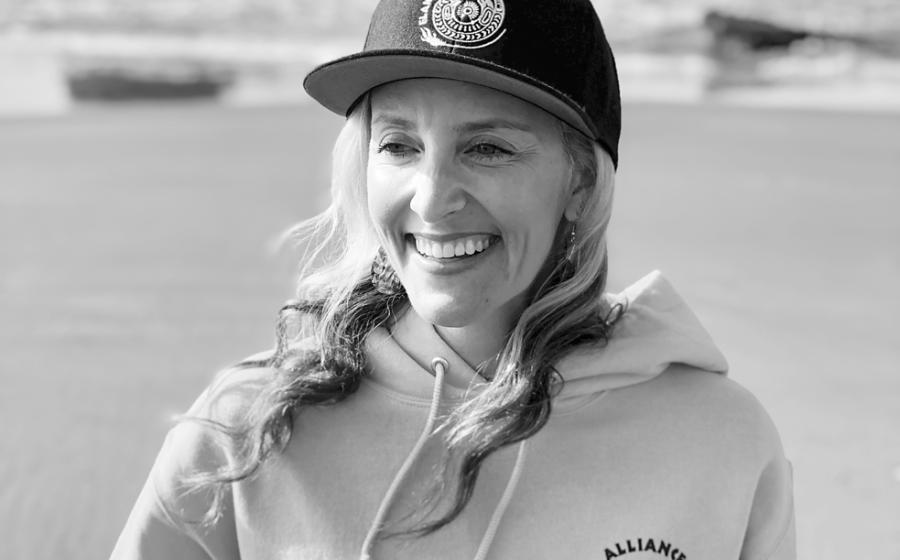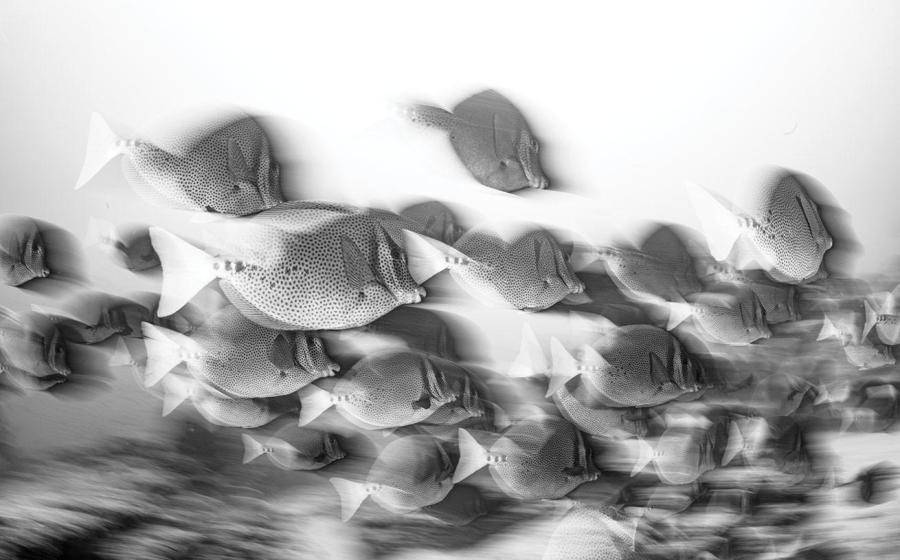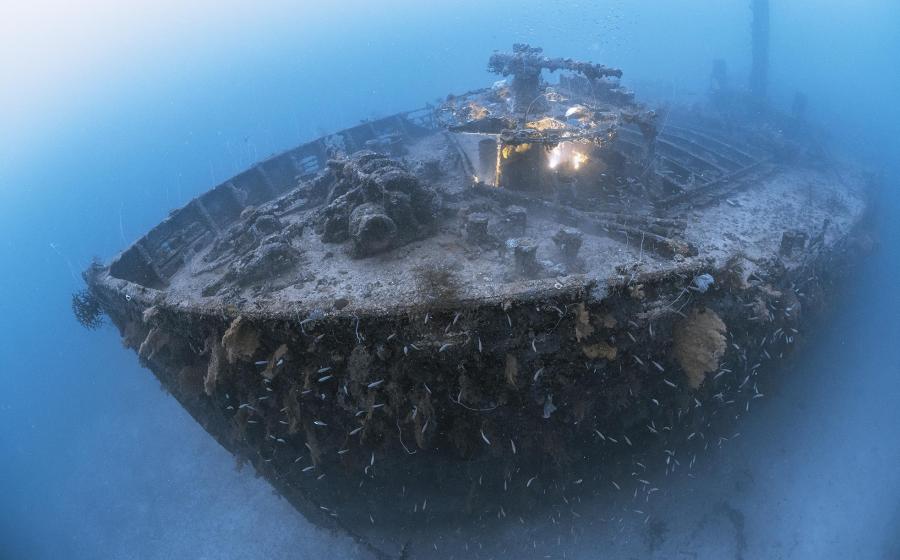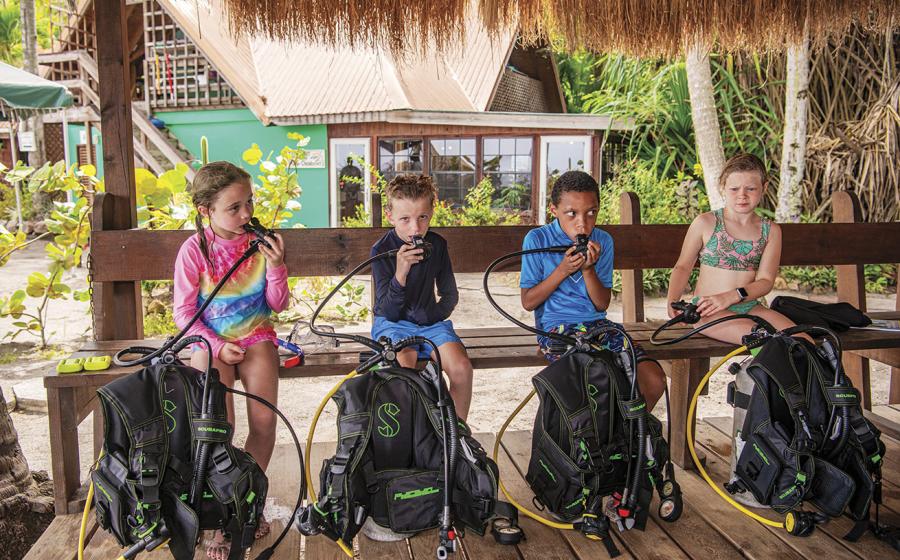Gobies Respond to Coral Reef Distress Calls

Gobies and Coral Reefs
Scientists believe that gobies like this Gobiodon histrio respond to chemical cues emitted by corals threatened by poisonous seaweed.
Courtesy Danielle Dixson
Coral reefs are in danger due to a number of threats — pollution, overfishing, climate change — but seaweed as a deadly adversary? Corals crying out for help? And 4-inch-long gobies as superheroes? The answer is “yes” to all three questions.
Corals compete with seaweed for sunlight and real estate — and some seaweeds are poisonous to the invertebrates. The corals “communicate” the threat, and gobies arrive like underwater caped crusaders.
When coral colonies are depleted, toxic algae begin to grow, bleaching and drying out the tissues of the corals. However, a recent study by Danielle Dixson, assistant professor and coral reef ecologist at the Georgia Institute of Technology, has revealed that the corals send out a chemical cue, or a “sort of chemical distress call,” that wafts through the water, luring gobies.
“We found that when the coral is in contact with the algae and has a coral goby living within the branches, the coral is not as affected by the algae,” Dixson says. “This is because the goby is actually acting like a lawn mower, trimming the algae back so it is no longer in contact with the coral.”
Dixson and her team exposed a coral colony without residential gobies to the toxic algae. She then pulled water from three different points: the algae alone, the contact point between the coral and algae, and the coral with all traces of algae removed. After separately injecting the samples into a coral containing gobies, she found that the fish did not move toward the water taken from the algae alone, but were drawn to the water taken from the contact point and coral alone — in a matter of minutes.
“This last test shows that the corals are releasing compounds to ‘call in’ the gobies’ help,” Dixson says. Gobies usually settle in a single coral for their entire lives, so it’s in their best interest to keep their habitats clean.
More Scuba Diving News:
NOAA and U.S. Coast Guard Protect WWI Wreck | Man Breaks World Record for Deepest Dive

Courtesy Danielle DixsonScientists believe that gobies like this Gobiodon histrio respond to chemical cues emitted by corals threatened by poisonous seaweed.
Coral reefs are in danger due to a number of threats — pollution, overfishing, climate change — but seaweed as a deadly adversary? Corals crying out for help? And 4-inch-long gobies as superheroes? The answer is “yes” to all three questions.
Corals compete with seaweed for sunlight and real estate — and some seaweeds are poisonous to the invertebrates. The corals “communicate” the threat, and gobies arrive like underwater caped crusaders.
When coral colonies are depleted, toxic algae begin to grow, bleaching and drying out the tissues of the corals. However, a recent study by Danielle Dixson, assistant professor and coral reef ecologist at the Georgia Institute of Technology, has revealed that the corals send out a chemical cue, or a “sort of chemical distress call,” that wafts through the water, luring gobies.
“We found that when the coral is in contact with the algae and has a coral goby living within the branches, the coral is not as affected by the algae,” Dixson says. “This is because the goby is actually acting like a lawn mower, trimming the algae back so it is no longer in contact with the coral.”
Dixson and her team exposed a coral colony without residential gobies to the toxic algae. She then pulled water from three different points: the algae alone, the contact point between the coral and algae, and the coral with all traces of algae removed. After separately injecting the samples into a coral containing gobies, she found that the fish did not move toward the water taken from the algae alone, but were drawn to the water taken from the contact point and coral alone — in a matter of minutes.
“This last test shows that the corals are releasing compounds to ‘call in’ the gobies’ help,” Dixson says. Gobies usually settle in a single coral for their entire lives, so it’s in their best interest to keep their habitats clean.
More Scuba Diving News:
NOAA and U.S. Coast Guard Protect WWI Wreck | Man Breaks World Record for Deepest Dive

